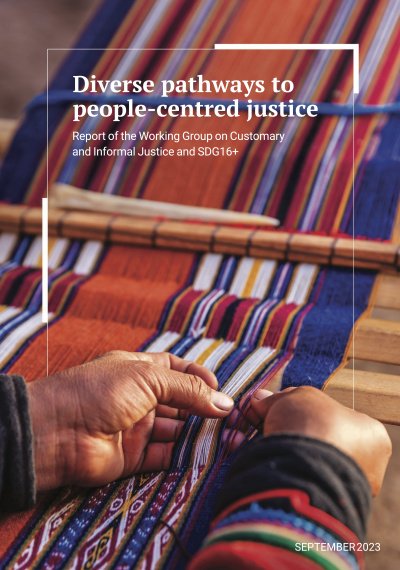Themes
Armed group economies
Cultural heritage
Climate
Protecting civilians
Armed group governance
Aid and access
Civilian agency
Regions
Asia
Africa
Americas
Other Region
Citizens without states: the implications of non-recognition for people in de facto states
This paper examine the impact of non-recognition of de facto authorities on the people living in these territories. Arguing that the negative social, economic and well being impacts are profound, it urges for a re-think approaches to de facto authority.
Diverse pathways to people-centred justice
Globally, most people do not resort to formal justice systems to address their justice problems. Rather, they rely on diverse pathways to justice often referred to collectively as “customary and informal justice.” Published by IDLO on behalf of the Working Group on CIJ and SDG16+, of which the Centre is a member, this report highlights the need for more people-centered approaches to justice.
Playing the long game: exploring the relationship between Al-Shabab and civilians in areas beyond state control
Based on extensive research in Al-Shabab controlled areas of Somalia, this paper explores dynamics between Al-Shabab and those who live under their control.
Taliban arms management practices
This paper argues that we should not see ‘political’ and ‘criminal’ groups as separate categories. Instead, we should envision a spectrum of motives and practices across all armed groups, regardless of how they are labelled.
Crime and communities: life under criminal group control
This paper argues that we should not see ‘political’ and ‘criminal’ groups as separate categories. Instead, we should envision a spectrum of motives and practices across all armed groups, regardless of how they are labelled.
Understanding agency in civilian-armed group interactions
This joint paper with ODI explores what we know (and what we don’t) about how ordinary people engage with armed groups.
Rethinking armed group control
Prevailing understandings of control – which focus on territorial dividing lines and acts of violence – are incomplete. Our paper argues that armed group control should instead be broken down according to how armed groups seek to influence populations.
Taliban narratives on Al Qaeda
Much has been written about the Taliban and Al Qaeda since 2001, but there is little consensus. Based on over 100 interviews with insurgent commanders and others, this report examines the Taliban’s strategic calculus for maintaining ties to Al Qaeda.








